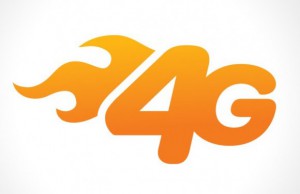 Some people don’t know what the difference is between 3G and 4G. Many may ask the question, “Why is 4G better then 3G?” People want faster downloads, access Wi-Fi instead of paying for their Data plan every month as well as stream music and videos faster. The cool thing is that people can multitask whenever they are talking to their friends or boss over the phone while at the same time using MapQuest to get directions to their favorite restaurant for a lunch meeting for instance. Overall, choosing a network may depend on what type of business you have; moreover, what your business needs.
Some people don’t know what the difference is between 3G and 4G. Many may ask the question, “Why is 4G better then 3G?” People want faster downloads, access Wi-Fi instead of paying for their Data plan every month as well as stream music and videos faster. The cool thing is that people can multitask whenever they are talking to their friends or boss over the phone while at the same time using MapQuest to get directions to their favorite restaurant for a lunch meeting for instance. Overall, choosing a network may depend on what type of business you have; moreover, what your business needs.
 What is 3G?
What is 3G?
Before we talk about 3G, people need to know what G is and what it stands for. The letter “G” stands for generation of mobile technology installed in phones on cellular networks. It requires you to get an upgrade for each G and same for networks. The first two were analog cell phones (1G) and digital phones (2G). Later, things got complicated when 3G was introduced in the U.S. in 2003.1
It contains a minimum and consistent Internet speed of 144kps which can bring “mobile broadband”. There are many varieties of 3G. Although you can still get connection to the Internet speeds anywhere from 400kps and up to more than ten times that speed.1
Pros
- Offers much faster data transfer up to speeds as high as 2Mbps2
- More apps such as TV, IM, video chatting and more
- Uses both packet switching network nodes3
- Has a bandwidth of 5-20 MHz3
- Advance multimedia access3
- Graphics and animation for most phones including games2
- Contains voice communication and data communication3
Cons
- Expensive to subscribe2
- Lack of improvement of video conferencing sessions2
- Slow internet connections in certain places2
- Lower data rates3
 What is 4G?
What is 4G?
4G is the fourth generation of cell phone mobile communication standards. It is the successor of the third generation (3G) standards. It provides mobile ultra-broadband Internet access, for example laptops with wireless internet modems, smartphones, and other mobile devices. It was part of Mobile WiMAX standard (at first in South Korea in 2006) and the first-release Long term evolution (LTE) standard (in Scandinavia since 2009). Later in 2008 International Telecommunications Union-Radio communications sector (ITU-R) had a set of requirements for 4G standards named the International Mobile Telecommunications Advanced (IMT-Advanced) specification.4 Many people thought that when 4G came out that it was suppose to be faster than 3G. This is not always the case and is subject to the mobile device you carry.
Pros
- Speeds on 4G networks are much faster than 3G networks since it does provide 10 times faster3
- Higher data rates3
- Data rate set for 100 M-bit in moving vehicles and 1 Gits in stationary and walking users3
- Advance mobile technology3
- Many companies offer low-cost 4G introductory offers that best suit your needs3
- Ultra Broadband Internet access
- Gaming Services and Stream multimedia facility to the user3
Cons
- Although it has great coverage expanding rapidly, but some in some locations around the world it may not be available.2
- Still have to purchase a wireless modem or pay rent for one at a reasonable rate2
- Packet switching infrastructures3
- Although it has great connectivity, but it is still in formative stages and could result in bugs or glitches2
- Coverage gaps as a result in loss in communication in certain cases3
- Higher data billing due to large data consumption3
Overall, companies have different preferences on what network they should choose to have. It can also depend on what mobile devices they use. Companies should check out restrictions on their mobile devices to make sure that they are getting a better deal on their phone. Both 3G and 4G networks provide speed and quality on most mobile devices.
Resources:
1. http://www.pcmag.com/article2/0,2817,2399984,00.asp
2. http://mobiledevices.about.com/od/carrierfaq/a/3g-Vs-4g-Which-Is-Better.htm
3. http://www.buzzle.com/articles/4g-vs-3g.html
4. http://en.wikipedia.org/wiki/4G




Centennial Arts liked this on Facebook.
Centennial Arts liked this on Facebook.
Skyler Simmons liked this on Facebook.
Alma Moreno liked this on Facebook.